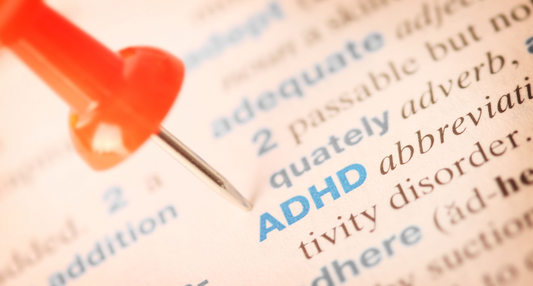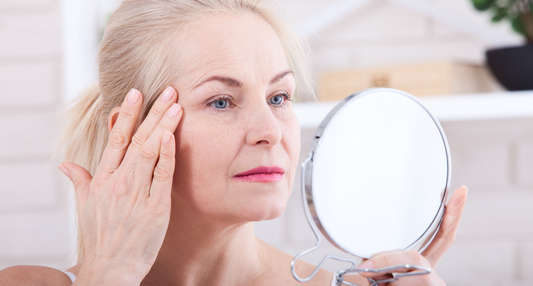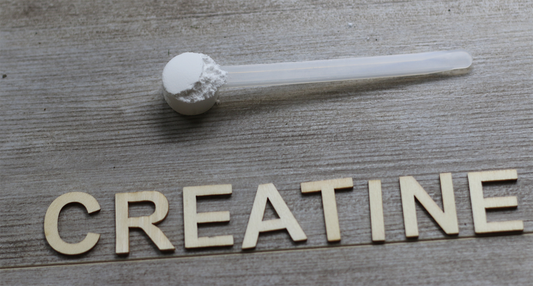Breaking The Silence: Demystifying Osteoporosis And Bone Health

Share
Osteoporosis is now acknowledged as the most prevalent bone disorder in the world. Estimates show that 50% of women over 50, and 20% of men over 50, will break a bone because of osteoporosis. Hip fractures are the most dangerous because they can lead to disability, death, and high personal and societal costs. Estimates say that the number of people with osteoporosis will double in the next 20 years because of changes in the population. According to a 2019 study in Acta Orthopaedica, the one-year mortality after a hip fracture is 21% for those whose fracture is surgically repaired. If the fracture is not repaired, the one-year mortality is about 70%.
With some small, yet powerful changes to your diet and lifestyle, you can protect your bones and reduce the risk of developing osteoporosis or experiencing a debilitating fracture. Read on to learn more!
Why Does Bone Density Matter? What Does It Mean For My Future Issues And Why Should I Care About It?
Bone density refers to the amount of minerals, such as calcium and phosphorus, that are present in our bones. It is an important indicator of bone strength and health. Bone density matters because low bone density can lead to a condition called osteoporosis, which is a disease in which bones become brittle and fragile, increasing the risk of fractures and other bone injuries.
As we age, our bones naturally become less dense, but some people experience a greater loss of bone density than others, which can increase their risk of developing osteoporosis. Factors such as gender, genetics, nutrition, physical activity, and certain medications can also affect bone density.
Maintaining healthy bone density is important for several reasons. First, it can help prevent osteoporosis and reduce the risk of bone fractures, which can be debilitating and even life-threatening in some cases. Second, strong bones support good posture, balance, and overall mobility, which can improve quality of life and reduce the risk of falls and other accidents.
To maintain healthy bone density, it is important to get enough calcium and vitamin D through a healthy diet or supplements, engage in weight-bearing exercise and resistance training, avoid smoking and excessive alcohol consumption, and talk to a doctor about any medications that may affect bone health. Regular bone density testing may also be recommended for some individuals to monitor their bone health and identify any potential issues early on.
What Are The Prime Factors Affecting Bone Density In Women?
There are several factors that can affect bone density in women. Some of the most significant ones include:
Age: As women age, their bone density tends to decline naturally, particularly after menopause when estrogen levels decrease.
Hormones: Hormonal changes can have a significant impact on bone density. Estrogen, in particular, plays an important role in maintaining bone density, and women who experience early menopause or have their ovaries removed are at increased risk of developing osteoporosis.
Genetics: Family history and genetics can also play a role in bone density. Women with a family history of osteoporosis may be at increased risk of developing the condition themselves.
Nutrition: Adequate calcium and vitamin D intake are important for maintaining bone health. Women who consume insufficient amounts of these nutrients may be at increased risk of developing osteoporosis.
Lifestyle factors: A sedentary lifestyle, smoking, excessive alcohol consumption, and low body weight can all contribute to lower bone density in women.
Medical conditions: Certain medical conditions, such as celiac disease, hyperthyroidism, and some autoimmune disorders, can also affect bone density.
It is important for women to be aware of these factors and take steps to maintain healthy bone density throughout their lives. This may include engaging in weight-bearing exercise, eating a healthy diet, avoiding smoking and excessive alcohol consumption, and talking to a doctor about any medical conditions or medications that may affect bone health.
A Lot Of Sources Say I Won’t Be Able To Tell My Bones Are Losing Density Until I Essentially Have Osteoporisis. Are There Any Hidden Clues I Can Look Out For That Might Indicate My Bone Density Isn’t Where It Should Be?
It is true that osteoporosis, a condition characterized by low bone density and increased risk of fractures, is often referred to as a “silent disease” because it can progress without symptoms until a fracture occurs. However, there are some subtle clues that you can look out for that may indicate lower than normal bone density. Here are a few examples:
Height loss: Women with osteoporosis may experience height loss due to vertebral compression fractures.
Back pain: Vertebral compression fractures can also cause back pain or a stooped posture.
Receding gums: Bone loss in the jaw can lead to receding gums or loose teeth.
Weak or brittle nails: Some studies have suggested that weak or brittle nails may be associated with lower bone density.
Fractures: Women who experience fractures from relatively minor incidents, such as a fall from standing height, may be at increased risk of osteoporosis.
A family history of osteoporosis: Women with a family history of osteoporosis may be at increased risk themselves.
It is important to note that these clues are not definitive indicators of low bone density and should not be used to self-diagnose. If you are concerned about your bone health, it is important to speak with your doctor and discuss your risk factors and whether bone density testing is recommended.
What If I Was “Bad” About Taking The Necessary Steps To Care For My Bone Health In My Younger Years? Are There Still Things I Can Do To Improve Or Maintain My Bone Density?
It is never too late to start taking steps to improve or maintain bone density, even if you may not have been as proactive about bone health in your younger years. Here are some actions you can take:
Get enough calcium and vitamin D: Adequate calcium and vitamin D intake are crucial for maintaining bone health. It’s recommended that adults under the age of 50 get 1,000 milligrams of calcium and 600-800 international units of vitamin D per day, and adults over the age of 50 get 1,200 milligrams of calcium and 800-1,000 international units of vitamin D per day. You should get your calcium through food sources, as supplements are not as effective. Vitamin D can be obtained through through diet and/or supplements.
Engage in weight-bearing exercise: Regular weight-bearing exercise, such as walking, jogging, dancing, or weightlifting, can help maintain bone density and strength. Aim for at least 30 minutes of weight-bearing exercise most days of the week.
Quit smoking: Smoking can negatively affect bone health and increase the risk of osteoporosis. If you smoke, quitting can help improve your bone health and overall health.
Limit alcohol intake: Excessive alcohol consumption can also negatively affect bone health. If you drink alcohol, aim to do so in moderation.
Talk to your doctor: If you have concerns about your bone health, talk to your doctor about whether bone density testing or other screenings are recommended. Your doctor may also be able to provide guidance on lifestyle changes or medications that can help improve bone health.
Remember that making changes to improve bone density may take time and consistent effort, but the benefits can be significant and may help reduce the risk of fractures and other bone injuries in the future.
What Are The Most Crucial Things A Woman Over 35 Can Do Right Away To Either Halt Or Reverse Damage To Our Bones?
Here are some of the most crucial things a woman over 35 can do right away to either halt or reverse damage to her bones:
Increase calcium and vitamin D intake: Adequate calcium and vitamin D intake are crucial for maintaining bone health. You can increase your intake of these nutrients through a healthy diet or supplements. Foods high in calcium include dairy products, leafy green vegetables, and fortified foods such as cereals and orange juice. Foods high in vitamin D include fatty fish, egg yolks, and fortified foods such as milk and cereal.
Engage in weight-bearing exercise: Weight-bearing exercise, such as walking, jogging, dancing, or weightlifting, can help maintain bone density and strength. Aim for at least 30 minutes of weight-bearing exercise most days of the week.
Quit smoking: Smoking can negatively affect bone health and increase the risk of osteoporosis. If you smoke, quitting can help improve your bone health and overall health.
Limit alcohol intake: Excessive alcohol consumption can also negatively affect bone health. If you drink alcohol, aim to do so in moderation.
Talk to your doctor: If you have concerns about your bone health, talk to your doctor about whether bone density testing or other screenings are recommended. Your doctor may also be able to provide guidance on lifestyle changes or medications that can help improve bone health.
Consider medications: If your bone density is already low, your doctor may recommend medications to help slow down or reverse bone loss. Medications such as bisphosphonates, hormone therapy, or selective estrogen receptor modulators (SERMs) may be prescribed.
Remember that these steps may take time and consistent effort, but they can help improve bone health and reduce the risk of fractures and other bone injuries in the future.
Am I Eating Anything (Or Not Eating Things) That Affects My Bone Density And How Do I Change That?
Yes, our diet can have a significant impact on bone density. Here are some dietary factors that can affect bone health and some suggestions for how to change them:
Calcium intake: Adequate calcium intake is crucial for maintaining bone health. If you’re not getting enough calcium in your diet, your body will take it from your bones, which can lead to bone loss. Good sources of calcium include dairy products, leafy green vegetables, and fortified foods such as cereals and orange juice. If you’re not getting enough calcium through your diet, consider taking a calcium supplement.
Vitamin D intake: Vitamin D is necessary for the absorption of calcium. Your body can make vitamin D when your skin is exposed to sunlight, but many people don’t get enough sunlight or vitamin D in their diet. Good food sources of vitamin D include fatty fish, egg yolks, and fortified foods such as milk and cereal. Vitamin D supplements may also be recommended if you’re not getting enough through diet and sunlight exposure.
Protein intake: Adequate protein intake is also important for bone health. Protein is necessary for the formation of bone tissue. Good sources of protein include lean meats, poultry, fish, beans, and tofu.
Sodium intake: High sodium intake can increase calcium loss in the urine, which can lead to bone loss over time. Try to limit your sodium intake by choosing low-sodium options when available and avoiding processed and packaged foods that are often high in sodium.
Caffeine and alcohol intake: Excessive caffeine and alcohol intake can also negatively affect bone health. If you drink coffee or alcohol, aim to do so in moderation.
Smoking: Smoking can negatively affect bone health and increase the risk of osteoporosis. If you smoke, quitting can help improve your bone health and overall health.
Remember that making changes to your diet and lifestyle can take time and consistent effort, but the benefits to bone health can be significant. If you have concerns about your bone health or diet, talk to your doctor or a registered dietitian for guidance.










